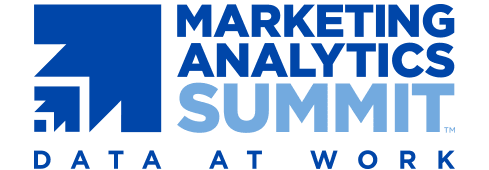Marketing Analytics Summit 2019: Three takeaways – By Rigel Cable
Marketing Analytics Summit 2019: Three takeaways
Not often do analytics professionals gather from around the world, including both brand and agency representation. In mid-June I attended the Marketing Analytics Summit 2019 in Las Vegas hosted by Jim Sterne, and not only were there a wide range of topics from process and data governance to cutting edge technology, there was plenty of side time to network with fellow colleagues and share knowledge about how we are solving similar problems.
Here are three takeaways from the conference:
Attribution isn’t one size fits all
Omnichannel attribution is on everyone’s minds. From offline to online, across media advertising, and between devices, the business value of linking all datasets into one single customer view is undeniable. Understanding how different customer touchpoints contribute to final sale is the age old question of marketers and one that helps businesses allocate resources and media budgets. However, the answer is not one size fits all. And many businesses are early in the process of linking their data.
Takeaway: Many businesses have begun to develop custom attribution solutions for their business, including creating their own algorithms and models that represent how their customer moves across touchpoints and based on their business mechanics. Instead of a predefined approach (for example, a prepackaged attribution algorithm), work on creating your own model that checks out for your business.
There’s analytics to analytics!
You might think that the only challenge for an analytics professional is collecting the data, analyzing, and creating great takeaways. But no, the secondary challenge is to encourage the dissemination of that information and adoption of data literacy across the organization. Not only do businesses have trouble collecting data, once they have organized and prepared it, it’s hard to get the right people to understand and act on it.
Takeaway: Businesses conduct surveys on dashboard and reporting usage as well as track views on dashboards themselves (that’s right: analytics of analytics). So before you invest in creating more automated reports and data systems, determine your plan for how the information will be disseminated and worked into decision-making.
Make way for AI & machine learning
A hot topic in several sessions was AI, machine learning, and automated intelligence. The vendor floor had several AI-driven data analysis platforms. This will certainly be the next wave of analytics tools. The more time that analytics professionals can spend assembling insights and investigating business problems, instead of analyzing data and running mathematical comparisons, the better the value that organizations will get out of analytics teams.
Takeaway: Instead of building an expertise around data analysis and reporting, build a team of strong business problem solvers. Once you have assembled large datasets, see how AI might unlock faster processes or allow for automated systems.
Conclusion – More of this!
In a field like analytics that is always changing, it’s valuable to have mind-melding moments like the Marketing Analytics Summit. It allows for professionals to understand how their approach and team skills compare to others in the field. And learning happens faster when we are all starting from the same perspective. We should aim to convene more often, share more openly, and support our analytics team in attending conferences like these.
